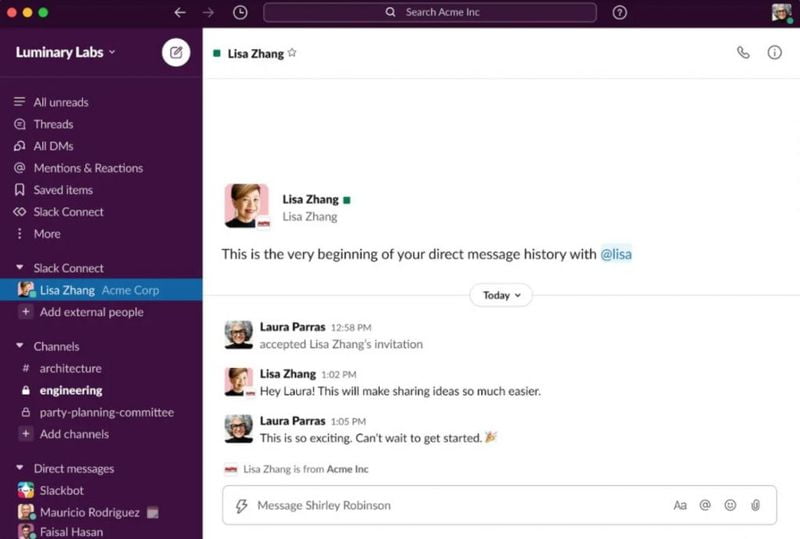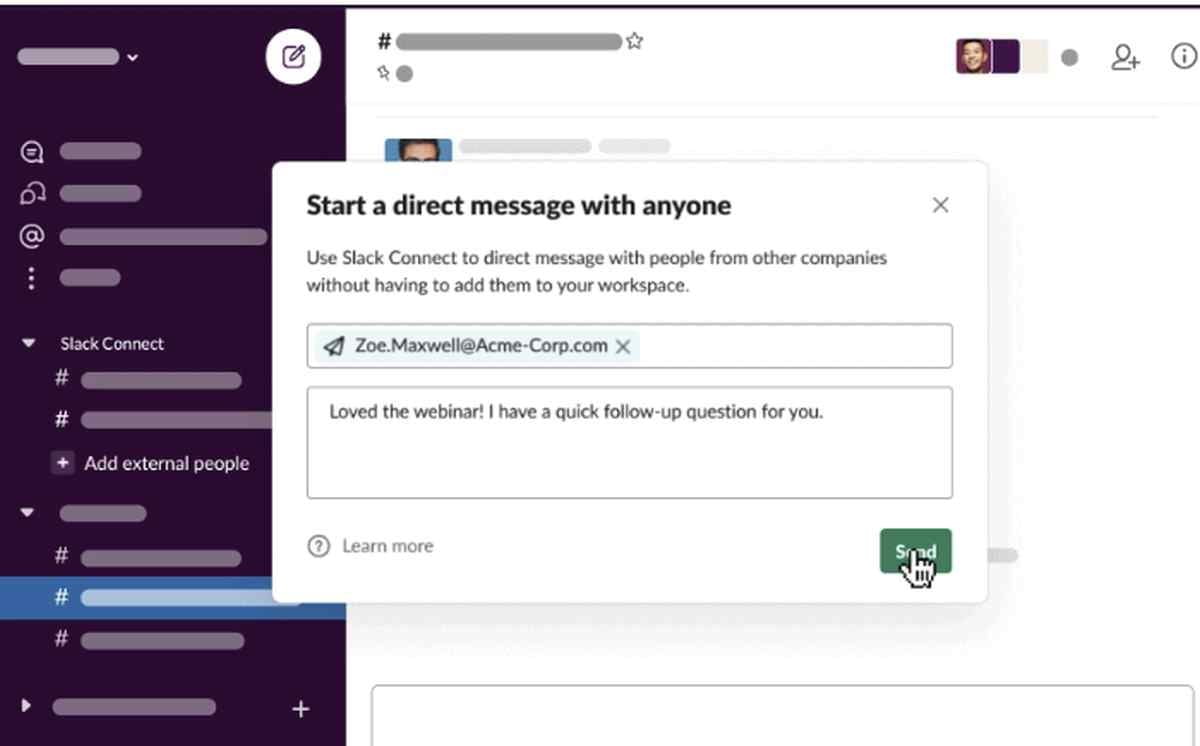Slack now allows sending direct messages to members of other companies. The Covid-19 coronavirus pandemic has brought with it changes in different areas of daily life, including the workplace, which has forced companies to reinvent themselves to continue operating, accelerating the adoption of flows related to remote work, with all that this entails, with the combination of face-to-face and remote work already being commonplace in many cases.
In this aspect, Slack wants to be the cornerstone of business communications for those sectors and companies that have opted for remote work in a distributed manner. For this reason, the platform has recently been addressing the needs of companies to be in contact with third parties.
Thanks to this, Slack developed Connect, its technology that enables collaboration between different companies through shared channels, and based on Slack Connect comes from today’s Direct Messages.
Without going any further, Slack Connect Direct Messages is a feature that they were working on in Slack in recent months and presented at the beginning of last October.
The idea is, as we can guess, to stop relying on email for business communications with third parties, be they partners, customers, collaborators, etc. Slack Connect Direct Messages will allow the sending of special links that lead to the start of conversations, depending on the configurations established by the administrators in their respective workspaces in Slack.

According to Slack’s description:
Simply send an invitation to any partner and start sending messages in Slack as soon as the other party accepts, speeding up work that often starts with back-and-forth emails.
It should be noted that invitations have a 14-day expiration, after which, the interested party can resend a new invitation in case the invitation recipient did not accept the previous invitation. And quite logically, Direct Messages are meaningless and impossible if both companies already have shared channels.
For now, this feature is available for those workspaces underpaid plans, although Slack intends to expand it in the future also to workspaces available under free accounts.
But Slack wants to go further in business inclusiveness, so it also plans to bring a feature that will allow grouping several organizations in a private business network, sharing unified directory, channel discovery, and even applications.
This feature, according to Slack, will be launched later this year.





